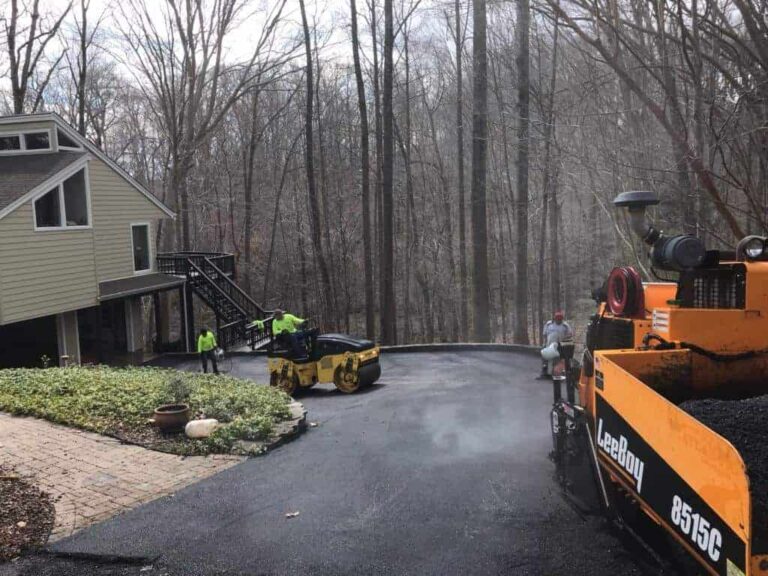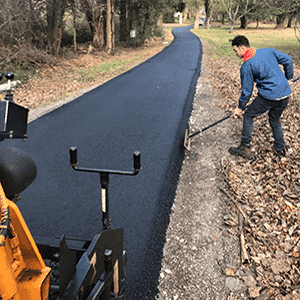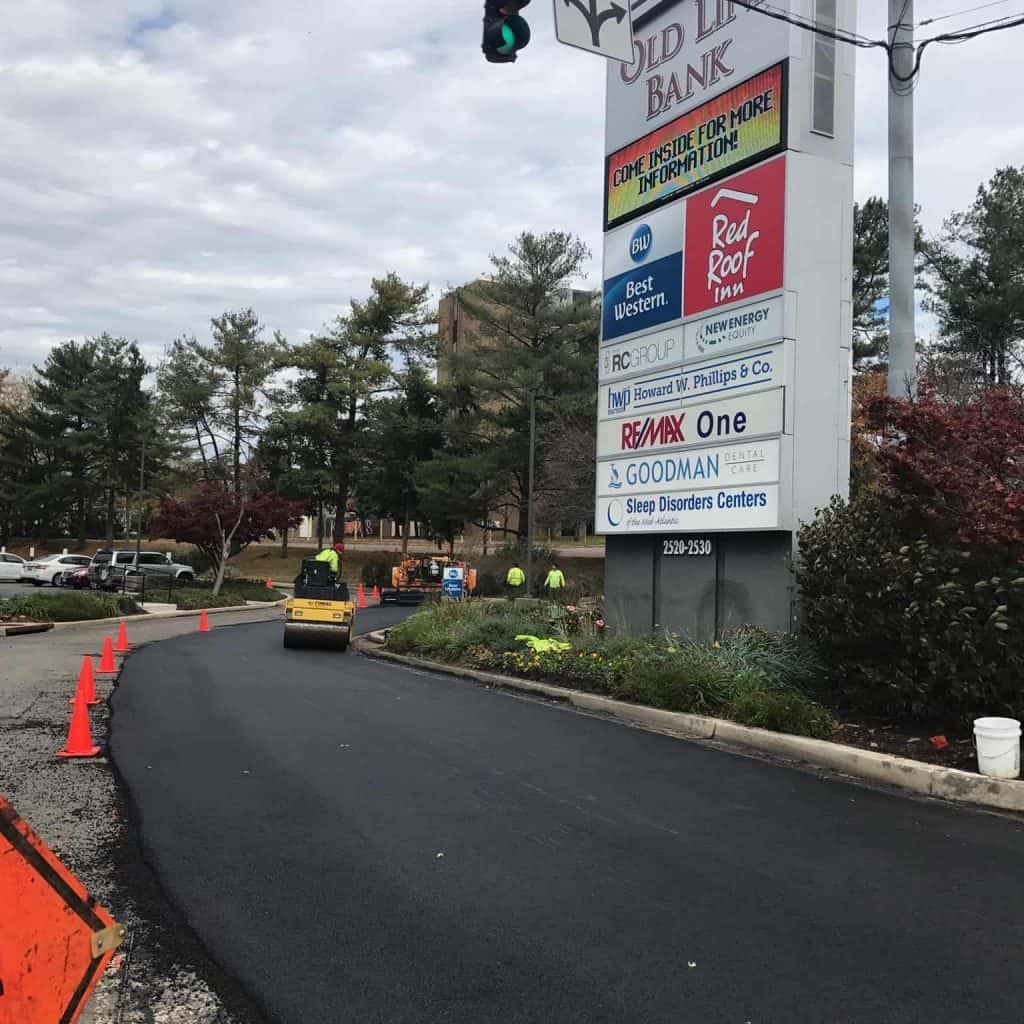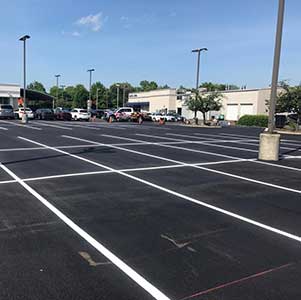Recycled asphalt, a sustainable material, is the result of reprocessing old asphalt from roadways, parking lots, and other paved surfaces. Instead of discarding this used material, it is milled, crushed, mixed with new asphalt, or used in its reclaimed form for road construction and maintenance. This process plays a crucial role in reducing waste in landfills, conserving natural resources like aggregate and bitumen, and lowering the energy required for producing new asphalt, making it both environmentally friendly and cost-effective. The inspiring environmental benefits of recycled asphalt, such as reducing waste and conserving resources, foster a more sustainable approach to road construction and maintenance.
The process begins with:
Asphalt Milling
– Milling removes the top layer of an asphalt road. A milling machine or cold planer grinds the old asphalt to a specified depth, usually a few inches.
– The milled material is collected on-site or transported to a plant for further processing. It consists of a combination of asphalt and aggregates (gravel, sand, etc.).
Recycling Process
– After milling, the reclaimed asphalt is screened and sometimes crushed further to ensure consistency in size.
– The material can be mixed with new aggregates, asphalt cement, and rejuvenating agents to restore its properties.
– The new mix can then be applied as part of a new road surface or used as a base layer for other road construction projects.
Applications of Recycled Asphalt
The most common use of RAP is hot-mix asphalt (HMA), which is blended with new materials to produce a new mix.
– Cold Mix Asphalt: RAP can also be used in cold mix applications, where it’s combined with a binder and placed without heating.
– Road Base and Sub-base: Recycled asphalt can be used as a sturdy base layer for roads, driveways, and parking lots.
Challenges with Recycled Asphalt
– Quality Variability: The performance of recycled asphalt can vary based on the age of the material, its original composition, and how it’s processed. Careful attention to mixing and application is needed to ensure good results.
– Rejuvenating agents, such as softening agents or new asphalt binders, are sometimes needed to ensure that the aged binder in RAP performs like new ones.
These agents help restore the properties of the recycled material, enhancing its performance and longevity.
Recycled asphalt is gaining popularity due to several key factors that align with modern priorities in construction, sustainability, and cost-efficiency. Here are the main reasons driving its increased use:
Environmental Sustainability
● Resource Conservation: Recycling asphalt reduces the need for virgin materials extracted from finite natural resources, such as fresh aggregates and asphalt binders. This conservation helps preserve ecosystems and reduces the environmental footprint of construction projects.
● Waste Reduction: Recycling reduces the amount of old asphalt in landfills. Asphalt is 100% recyclable and can be reused multiple times, significantly reducing construction waste.
● Lower Greenhouse Gas Emissions: The production of new asphalt from raw materials requires substantial energy, leading to carbon emissions. Recycling asphalt uses less energy, thus lowering the overall greenhouse gas emissions associated with road construction and maintenance.
Cost-Effectiveness
● Lower Material Costs: Recycled asphalt is typically less expensive than virgin materials. It allows construction companies to reduce costs by reusing materials that would otherwise be discarded.
● Transportation Savings: In many cases, recycled asphalt can be processed and reused on the same site where it is milled, eliminating transportation costs for old and new materials.
● Lower Production Costs: Since milling and recycling require less energy than fresh asphalt, it reduces overall production costs for paving and construction companies, allowing them to pass savings onto clients and taxpayers.
Durability and Performance
● Improved Material Properties: Recycled asphalt often has a denser structure and more robust binding properties because the asphalt has aged and hardened. RAP can offer excellent durability and strength for road surfaces when adequately processed and mixed with new materials.
● Resistance to Wear: Roads made with a mix of recycled and new asphalt tend to perform well under high traffic, especially when rejuvenators are added to restore the binding properties of the aged asphalt.
4. Regulatory and Industry Support
● Government Initiatives: Many governments and municipalities are encouraging using recycled materials in construction projects, including asphalt, to meet
sustainability targets and reduce the environmental impact of public infrastructure.
● Industry Standards: Advances in asphalt recycling technology have improved quality control and mixing methods, making recycled asphalt a viable and often preferred option for road construction. Agencies like the Federal Highway Administration (FHWA) promote RAP in road construction projects as part of national infrastructure policies.
Advances in Recycling Technology
● Improved Equipment and Processes: Asphalt milling and recycling techniques have improved significantly, making it easier to collect, process, and mix RAP efficiently without sacrificing quality.
● Rejuvenating Agents: New additives and rejuvenators can restore the properties of aged asphalt binders, making recycled asphalt perform similarly to virgin asphalt regarding flexibility, adhesion, and durability.
Increased Demand for Sustainable Construction
● Eco-conscious Consumer Base: There is growing pressure from the public, businesses, and governments for sustainable construction practices. Using recycled asphalt fits into the broader trend of green building, helping construction companies and municipalities meet environmental goals and earn sustainability certifications.
● Corporate Responsibility: Many companies adopt sustainability practices to enhance their reputations and meet corporate social responsibility (CSR) commitments. Using recycled materials like asphalt is one way to demonstrate environmental stewardship.
To summarize, recycled asphalt and road milling offer a sustainable, cost-effective road construction and maintenance solution. The process reduces waste and energy usage and minimizes the need for new materials, making it an essential practice in modern infrastructure development. The benefits of using recycled asphalt, including cost savings, environmental sustainability, energy efficiency, and improved performance, make it a compelling choice for road construction projects.







